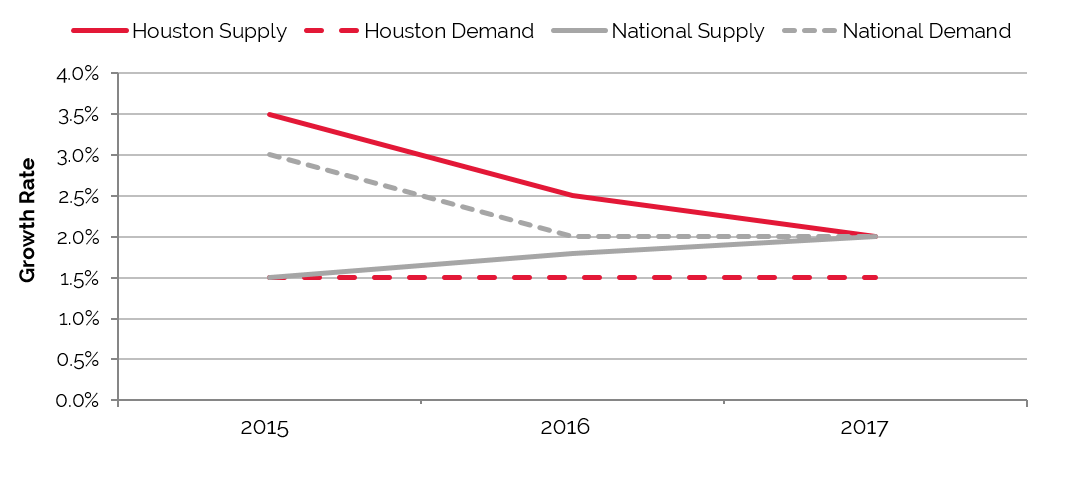Hotel values in St. Louis are rising, and RevPAR reached a new high in 2015. A rise in convention bookings, along with expansion efforts aimed at drawing more leisure demand, provide for an optimistic outlook for the city’s hotel industry.
Industry Insights
We have written thousands of articles about all aspects of hospitality, including valuations, investing, lending, operations, asset management, and much more.
In Focus: St. Louis, MO
Hotel values in St. Louis are rising, and RevPAR reached a new high in 2015. A rise in convention bookings, along with expansion efforts aimed at drawing more leisure demand, provide for an optimistic outlook for the city’s hotel industry.
In Focus: Minneapolis, MN
Major events and tourism boosted occupancy and average rate in the Twin Cities in 2015. Hotels stand to benefit from increased visitation in the years to come, keeping average rates and property values on the rise.
An HVS Guide to Hotel Revenue Management
Revenue management for hotels has transformed over the past four decades, though some of its tried and true principles remain in place. What does the practice of modern revenue management mean to hotel operations?
In Focus: Phoenix, AZ
Phoenix’s growth in 2015 reflects the hopes of hotel developers and owners in the market, as performance closes in on pre-recession levels.
HVS Key Takeaways: Boutique Hotel Investment Conference 2016
The conference keyed in on ways for independent hotels to gain ground in today’s market, from financing avenues to booking channels. Changes in consumer behavior, with tastes favoring the hotel “experience” more than price or brand, were a highlight.
2016 Hotel Cost Estimating Guide
HVS Design and Jonathan Nehmer + Associates (JN+A) are proud to announce the completion of the 2016 Hotel Cost Estimating Guide. The Guide is a comprehensive listing of capital expenditure construction and FF&E costs for hotel renovations in the USA.
In Focus: Houston, TX
Thanks to energy-driven demand, Houston achieved record occupancy levels in 2014. The recent fall of oil and gas prices and more than 5,000 new rooms on the horizon poses a challenge to market-wide occupancy, though average rates continue to climb.
In Focus: Hampton Roads, VA
Though on the verge of an influx of new hotel supply, demand in Hampton Roads has risen in recent years, improving occupancy and allowing hoteliers to command better rates.
In Focus: Seattle, WA
Occupancy swung above 75% for Seattle’s hotel industry in 2014, a reflection of the city’s blossoming economy. High demand has also supported strong average rates and rising hotel values.
In Focus: Denver, CO
Denver’s growth this year reflects what many hotel developers and owners have been witnessing—as a market for jobs, business, and development, Denver continues to outperform.
Industry Insights
We have written thousands of articles about all aspects of hospitality, including valuations, investing, lending, operations, asset management, and much more.
Major events and tourism boosted occupancy and average rate in the Twin Cities in 2015. Hotels stand to benefit from increased visitation in the years to come, keeping average rates and property values on the rise.
Revenue management for hotels has transformed over the past four decades, though some of its tried and true principles remain in place. What does the practice of modern revenue management mean to hotel operations?
Phoenix’s growth in 2015 reflects the hopes of hotel developers and owners in the market, as performance closes in on pre-recession levels.
The conference keyed in on ways for independent hotels to gain ground in today’s market, from financing avenues to booking channels. Changes in consumer behavior, with tastes favoring the hotel “experience” more than price or brand, were a highlight.
HVS Design and Jonathan Nehmer + Associates (JN+A) are proud to announce the completion of the 2016 Hotel Cost Estimating Guide. The Guide is a comprehensive listing of capital expenditure construction and FF&E costs for hotel renovations in the USA.

Thanks to energy-driven demand, Houston achieved record occupancy levels in 2014. The recent fall of oil and gas prices and more than 5,000 new rooms on the horizon poses a challenge to market-wide occupancy, though average rates continue to climb.
Though on the verge of an influx of new hotel supply, demand in Hampton Roads has risen in recent years, improving occupancy and allowing hoteliers to command better rates.
Occupancy swung above 75% for Seattle’s hotel industry in 2014, a reflection of the city’s blossoming economy. High demand has also supported strong average rates and rising hotel values.
Denver’s growth this year reflects what many hotel developers and owners have been witnessing—as a market for jobs, business, and development, Denver continues to outperform.

Robust demand in urban centers continues to drive Canadian hotel values despite high interest rate environment.